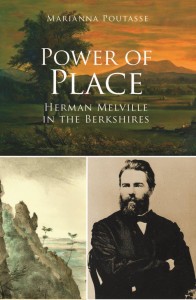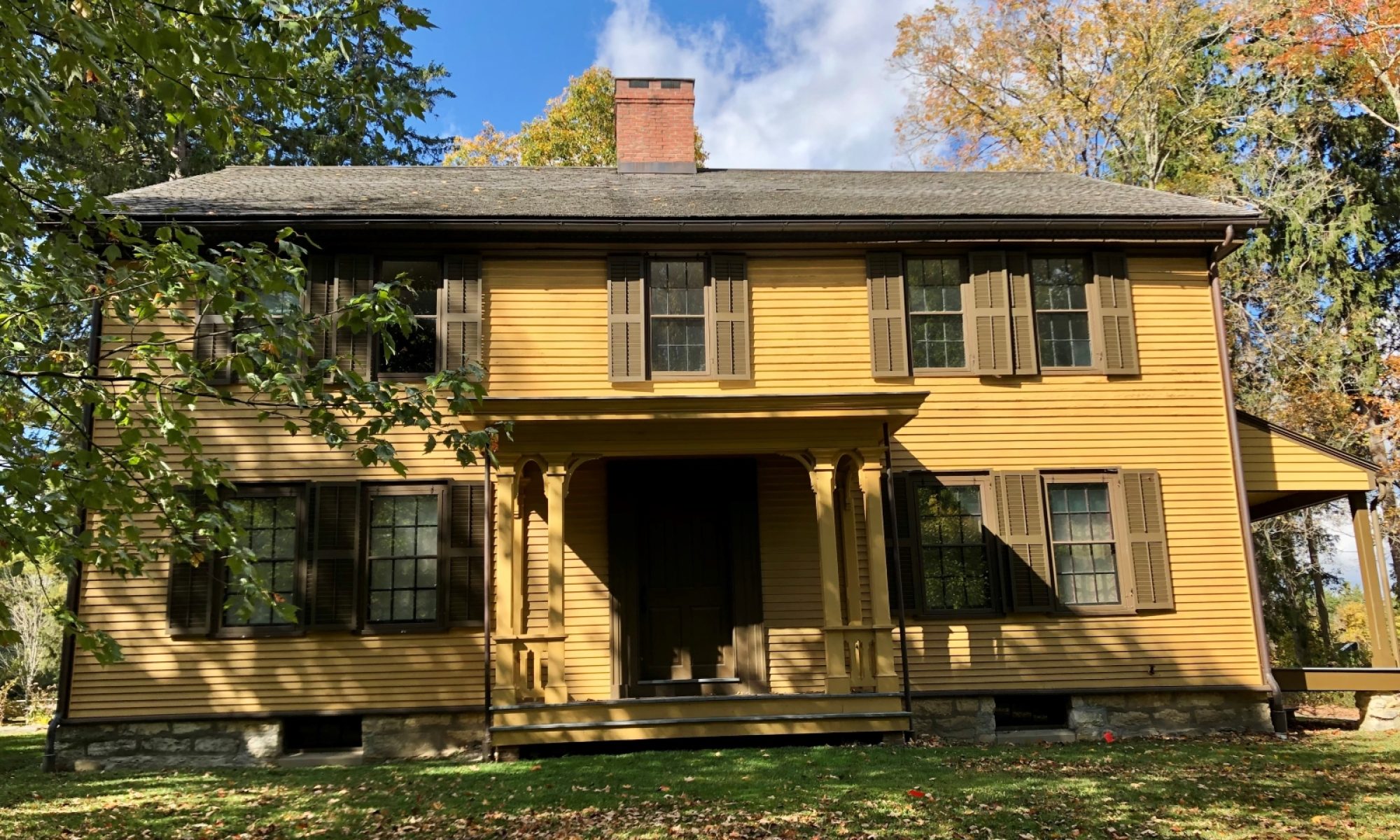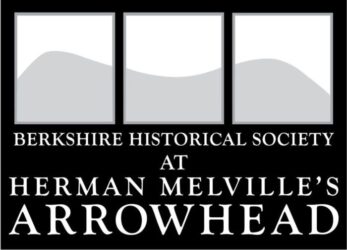On June 29, 1851, Herman Melville wrote to his friend Nathaniel Hawthorne. Melville describes life at Arrowhead:
My dear Hawthorne — The clear air and open window invite me to write to you… I have been building some shanties of houses (connected with the old one) and likewise some shanties of chapters and essays. I have been plowing and sowing and raising and painting and printing and praying, — and now begin to come out upon a less bustling time, and to enjoy the calm prospect of things from a fair piazza at the north of the old farm house here.
Bibliography
The following is a chronology of Melville’s published works. Those written at Arrowhead are marked **. All of Melville’s prose works are currently in print, as is some of the poetry. His works are readily available from several publishers.
The “definitive” editions of all of Melville’s writings are published by Northwestern University Press (Evanston, IL) and the Newberry Library (Chicago). Of the 15 volumes (“The Writings of Herman Melville”), 13 volumes are available in hard cover and paperback. These editions include extensive historical and critical notes.
1846 Typee: A Peep at Polynesian Life
1847 Omoo: A Narrative of Adventures in the South Seas
1849 Mardi, and a Voyage Thither
1849 Redburn: His First Voyage
1850 White-Jacket; or, The World in a Man-of-War
1850 “Hawthorne and His Mosses” in the Literary World (written in Pittsfield)
1851 Moby-Dick; or, The Whale** (recommended website: Moby-Dick)
1852 Pierre; or, The Ambiguities**
1853 “Bartleby, the Scrivener” in Putnam’s Monthly Magazine**
1853 “Cock-a-Doodle-Doo!” in Harper’s New Monthly Magazine**
1854 “The Encantadas, or Enchanted Isles” in Putnam’s Monthly Magazine**
1854 “Poor Man’s Pudding and Rich Man’s Crumbs” in Harper’s**
1854 “Israel Potter, Parts I-VI” in Putnam’s**
1855 “Israel Potter, Parts VII-IX” in Putnam’s**
1855 Israel Potter: His Fifty Years of Exile (published as a novel)**
1855 “The Paradise of Bachelors and the Tartarus of Maids” in Harper’s**
1855 “The Bell Tower” in Putnam’s**
1855 “Benito Cereno, Parts I-III” in Putnam’s**
1856 “I and My Chimney” in Putnam’s**
1856 “The ‘Gees” in Harper’s**
1856 “The Apple-Tree Table, or Original Spiritual Manifestations” in Putnam’s**
1856 The Piazza Tales (includes “The Piazza,” “Bartleby, the Scrivener,” “Benito Cereno,” and others)**
1857 The Confidence-Man: His Masquerade**
1866 Battle-Pieces and Aspects of the War (some poems written at Arrowhead)
1876 Clarel: A Poem and Pilgrimage in the Holy Land
1888 John Marr and Other Sailors (some poems written at Arrowhead)
1891 Timoleon (some poems written at Arrowhead)
1891 Weeds and Wildings, Chiefly, With a Rose or Two (some poems written at Arrowhead)
1924 Billy Budd, Sailor (written 1888-89)
Biographies
Power of Place: Herman Melville in the Berkshires. Marianna Poutasse. Berkshire Historical Society (Pittsfield) 2014. A comprehensive yet readable biography of Melville. Available at our gift shop or online.
Melville: A Biography. Dr. Laurie Robertson-Lorant. University of Massachusetts Press (Amherst) 1996; 1998. A revised edition will soon be published by Melville Press.
Herman Melville: A Biography Vol. 1, 1819-1851; Vol. 2, 1851-1891. Hershel Parker. Johns Hopkins University Press (Baltimore) 1996, 2001.
The Civil War World of Herman Melville. Stanton Garner. University Press of Kansas (Lawrence) 1993. This book deals mainly with Melville’s volume of poems entitled Battle-Pieces and Aspects of the War. It contains a great deal of information about the Berkshires during the Civil War and Melville’s involvement on the home front.
Melville in Love – The Secret Life of Herman Melville and the Muse of Moby-Dick. Michael Shelden. Harper Collins Publishers 2016. This book explores the relationship between Herman Melville and Sarah Morewood, Pittsfield socialite and neighbor across the hill from Melville’s home at Arrowhead. From The New Republic: “Four years younger than Melville, Morewood was an aspiring poet who was allergic to boredom and married to a wealthy, English-born stiff. She became the nucleus of Melville’s set in Pittsfield. Previous biographers haven’t considered her important in comprehending Melville, but Shelden believes that she will prove the most enduring influence on Melville’s life, a muse as well as a lover.’”
These are only five of the many fine non-fiction works about Melville.


